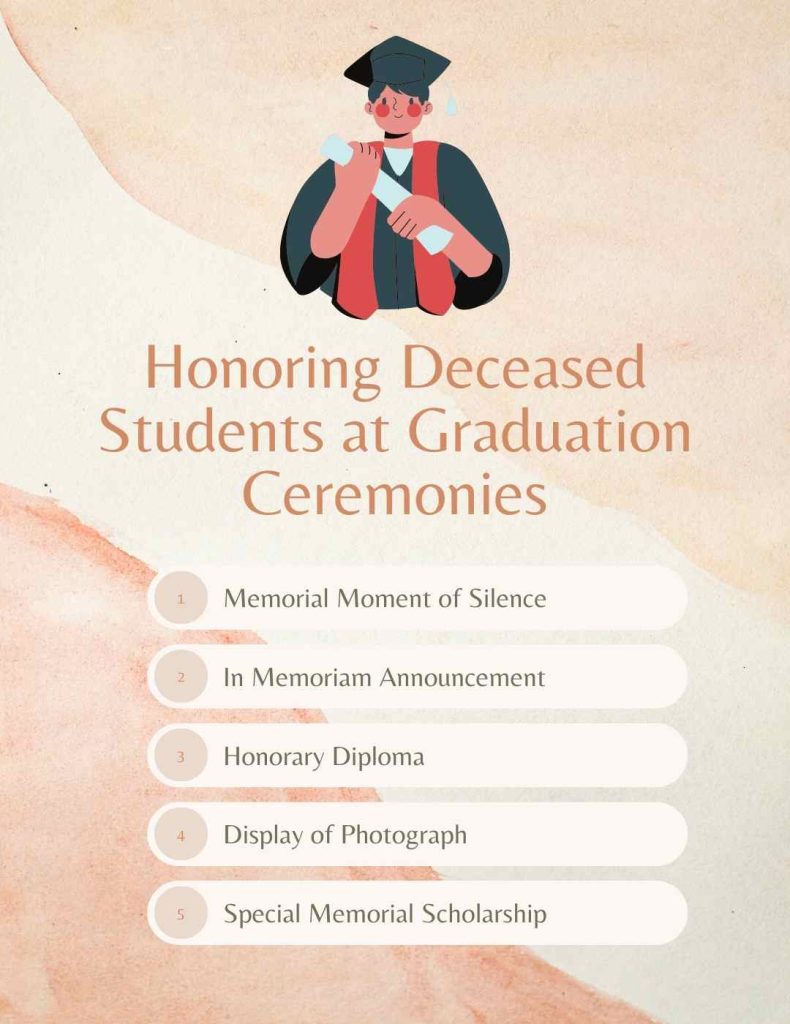Graduation ceremonies are an important milestone for students, their families, and the community. Unfortunately, sometimes we have to face the difficult task of honoring a student who has passed away before they could graduate. It is important to take the time to recognize and celebrate their achievements, as well as to offer comfort and support to their loved ones. In this blog post, I will discuss some ways to honor deceased students at graduation ceremonies.
Honoring Deceased Students at Graduation Ceremonies

Memorial Moment of Silence: The most common way to honor a deceased student is to observe a moment of silence during the ceremony. This is a respectful and meaningful way to pay tribute to their memory and acknowledge their absence.
In Memoriam Announcement: A special announcement can be made during the ceremony to recognize the student’s achievements and to express condolences to their family and friends. This can be done before or after the moment of silence.
Honorary Diploma: If the student had completed most of their requirements for graduation, it may be appropriate to award them an honorary diploma. This recognizes their hard work and accomplishments and provides a sense of closure for their family and friends.
Display of Photograph: A photograph of the student can be displayed prominently at the ceremony. This serves as a visual reminder of their achievements and allows their loved ones to feel their presence at the ceremony.
Special Memorial Scholarship: A scholarship in the student’s name can be established to help future students achieve their educational goals. This is a positive way to honor the student’s memory and create a lasting legacy.

Honoring Male, Female, and Different Age Group Students:
Honoring deceased students at graduation ceremonies is a delicate matter that requires sensitivity and respect. It is important to take into account the student’s gender, age, and cultural background when planning the tribute. Here are some additional considerations:
- If the student was a male, consider inviting a male faculty member or student leader to speak on their behalf.
- If the student was a female, consider inviting a female faculty member or student leader to speak on their behalf.
- For younger students, consider incorporating a children’s choir or other age-appropriate tribute into the ceremony.
- For older students, consider inviting a community leader or elder to speak on their behalf.
- Take into account the student’s cultural or religious background when planning the tribute. Consult with their family and community leaders if appropriate.
Conclusion:
Honoring deceased students at graduation ceremonies is an important responsibility for schools and communities. By taking the time to recognize and celebrate their achievements, we can offer comfort and support to their loved ones and create a meaningful tribute to their memory. Whether through a moment of silence, a special announcement, an honorary diploma, a display of a photograph, or a scholarship in their name, we can show that their accomplishments will not be forgotten.

